Meet the DNC chair candidates vying to take over Democratic leadership
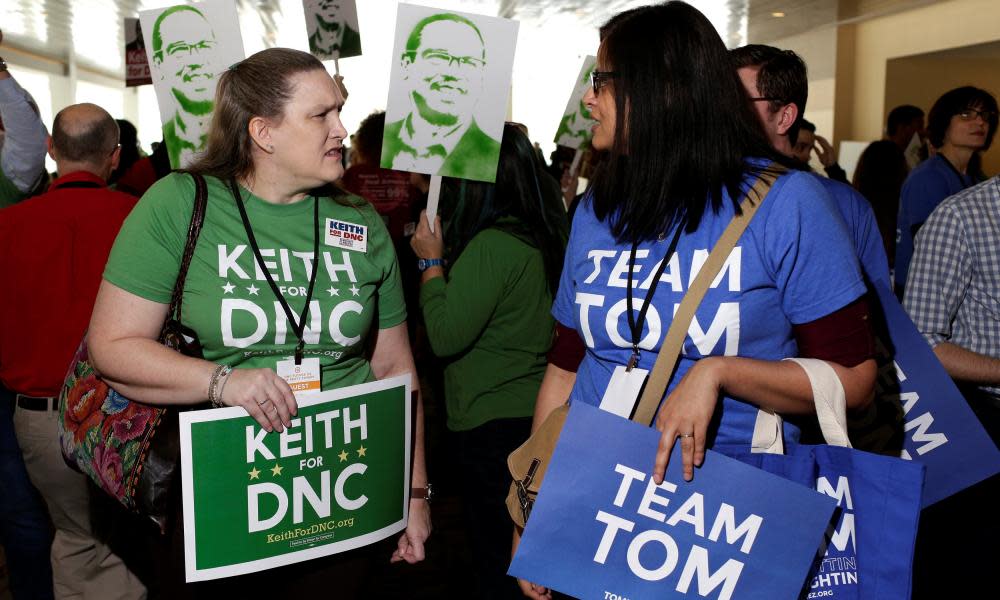
Hundreds of Democrats have gathered in Atlanta to chart their path forward after a demoralizing defeat in last year’s election. The most pressing issue on the agenda: choosing a new chair to lead the party in the era of Donald Trump.
After a months-long national campaign, the chairmanship will be decided by 447 voting members – party functionaries, including state party chairs, activists, donors and elected officials – in a ballroom at the Atlanta Convention Center on Saturday.
Former labor secretary Tom Perez, and Minnesota congressman Keith Ellison are the leading contenders for the job in a field that has winnowed to seven as of Thursday.
Though the tussle between the frontrunners has remained cordial in public, it bears echoes of the turbulent 2016 presidential primary that splintered the party along ideological lines. Perez is the preferred candidate of the Democratic establishment while Ellison is the choice of the party’s ascendent progressive wing. The remaining candidates are hoping to forge a lane through the middle.
No one has secured a majority of support yet, raising the possibility of multiple rounds before one candidate receives 224 votes.
Meet the candidates in the running for DNC chair.
Tom Perez
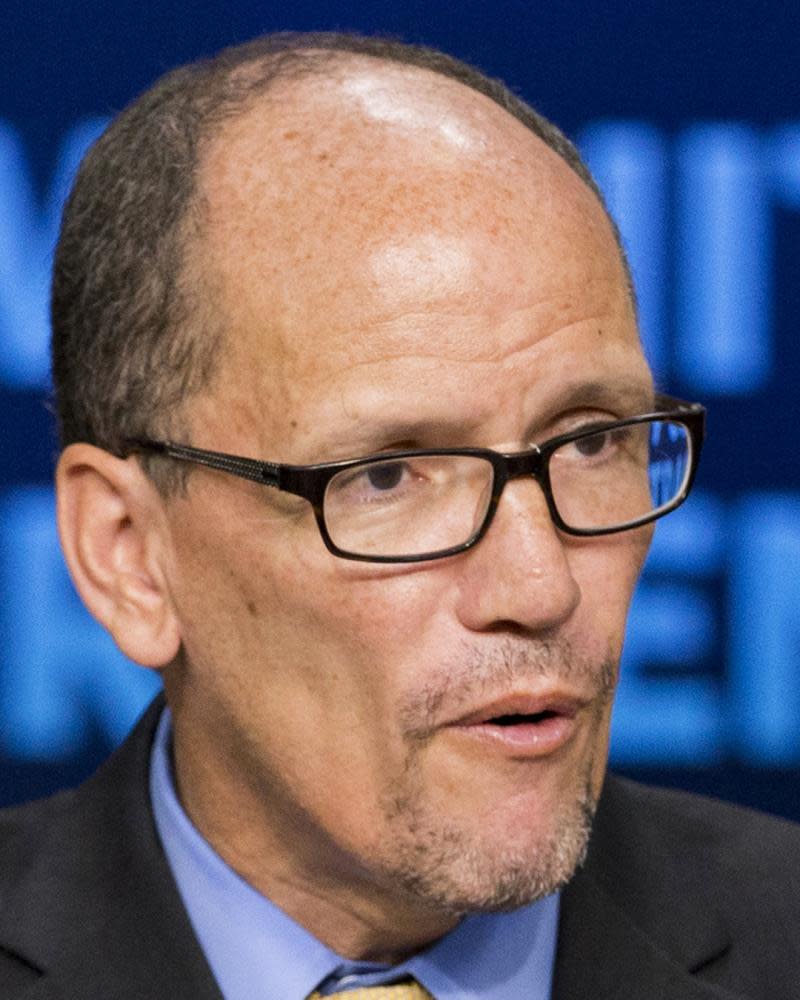
Former labor secretary Tom Perez, 55, says Democrats need a “turnaround specialist” – a technician for a party badly in need of repair – and he’s the one for the job.
He says his experience turning around the civil rights division at the justice department after the Bush era, and then doing the same with the 10,000-person workforce at the labor department is the model for what he wants to do with the DNC.
“I have a record of success in taking a complex organization, raising its performance and making sure it’s firing on all cylinders,” he told the Guardian en route to Seattle to meet with DNC members in the run-up to the Atlanta meeting. “That quality of a turnaround specialist is a really important quality in the next DNC chair.”
Perez, who appears to hold an edge in the contest, has spent the past few months meeting with DNC members in dozens of cities across the country. His takeaway from those conversations is that party Democrats feel underutilized.
“That won’t be the case if I’m the chair,” Perez said. “We need everybody engaged.”
As part of the DNC’s culture change, Perez envisions an “every zip code” strategy that would invest greater resources into state and local parties. He’s also said the party must do a better job engaging progressives and young people. As he puts it: “Diversity is being invited to the dance. Inclusion is being asked to dance.”
Since entering the race in December, reportedly at the urging of Obama administration officials, Perez picked up high-profile endorsements from former vice-president Joe Biden and former attorney general Eric Holder. He’s also earned the support of several labor groups.
Supporters say that Perez, the son of immigrants from the Dominican Republic who was raised in blue-collar Buffalo, New York, is best positioned to articulate an economic message that resonates with white working-class voters, while also advancing a progressive agenda.
His ties to the Obama administration and to Hillary Clinton have elicited suspicion from some progressive activists who view Perez as a representative of the Democratic establishment that failed to keep Trump from reaching the White House.
During the presidential primary, Perez endorsed Clinton, and she later considered him as a potential running mate.
Perez has said his progressive record “takes a backseat to no one”. While at the justice department, he led the investigation into Trayvon Martin’s death, sued Arizona’s Joe Arpaio – the Maricopa County sheriff who was recently charged with contempt of court in a racial profiling case – and challenged voter ID laws in Texas and South Carolina. At the labor department, Perez expanded the overtime pay rule and extended paid sick leave.
Perez said he’s confident all factions of the party will rally around him should he be elected.
“What unites us far exceeds where there are differences,” Perez said.
“And what unites us all is the existential threat of Donald Trump and this far-right Republican Congress. We cannot do anything to deflect our attention from the task at hand.”
Keith Ellison
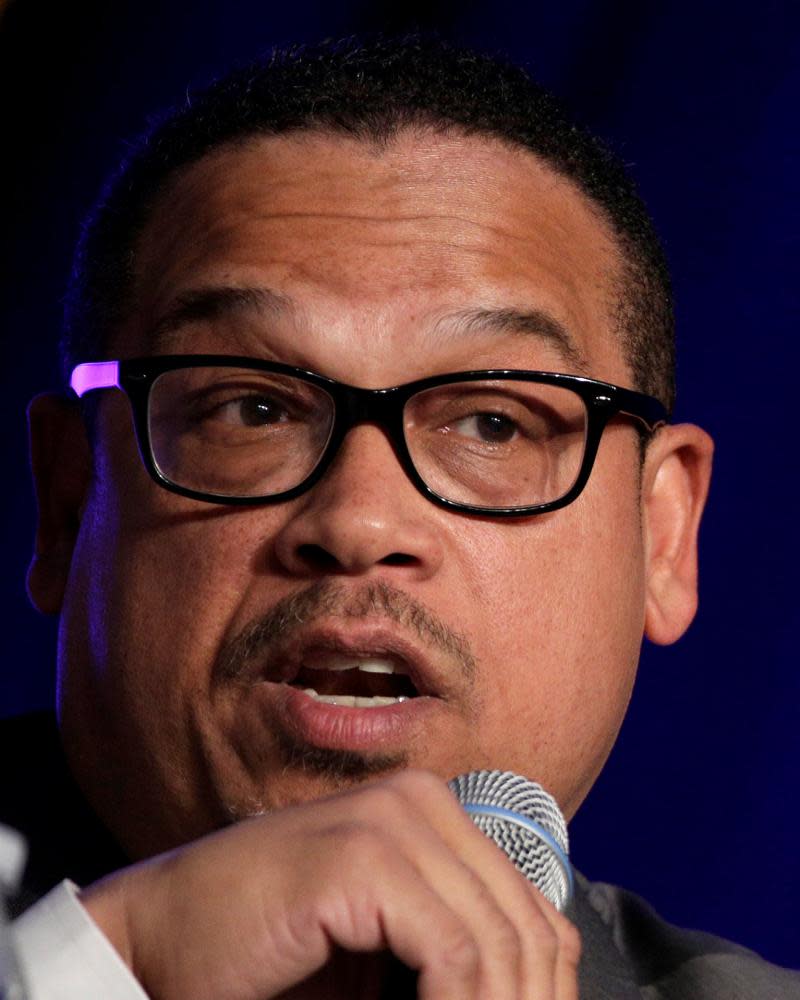
The first into the race, Keith Ellison announced his candidacy just days after Clinton’s loss, while many Democrats were still reeling from the shock of Trump’s election.
The liberal congressman, who started his career as a community organizer, is the favorite among progressive Democrats and activists, many of whom don’t have a say in Saturday’s election but consider the election a test of their standing within the party.
Both he and Perez have sought to downplay the narrative that the race is a proxy battle between wrangling factions of Democrats, even though Ellison’s supports clearly view it that way.
“I believe I’m the unity candidate in this race because I supported both Bernie Sanders and Hillary Clinton,” Ellison said on Wednesday. After vocally advocating for Sanders in the primary, Ellison became a prominent supporter of Clinton’s.
Ellison was the first Muslim elected to Congress, and was sworn in on Thomas Jefferson’s Qur’an. He is a co-chair of the Congressional Progressive Caucus and straddles the internal party debate between economic populism and identity politics. He also predicted that Donald Trump could win the nomination when few believed it could happen, a foresight the president praised on Wednesday.
The congressman has earned support from Sanders and Senator Elizabeth Warren as well as Senate minority leader, Chuck Schumer. He was also backed by the AFL-CIO, one of the most high-profile and influential labor unions.
Ellison’s biggest impediment is the criticism from Jewish groups and donors over his past support for the Nation of Islam and recently resurfaced comments on Israel. He has apologized for the remarks and forcefully denied the charges of antisemitism.
“I have a long, strong history of interfaith dialogue, interfaith communication, and that’s why in my own community, I have strong support from the Jewish community,” Ellison said during the CNN debate. “These are smears and we’re fighting back every day.”
If elected, Ellison has called for a 3,143-county strategy, an expansion of the 50-state strategy, which is a political approach that funnels money and resources to state and local parties. He has said he would resign his seat in Congress if he won the race.
Pete Buttigieg
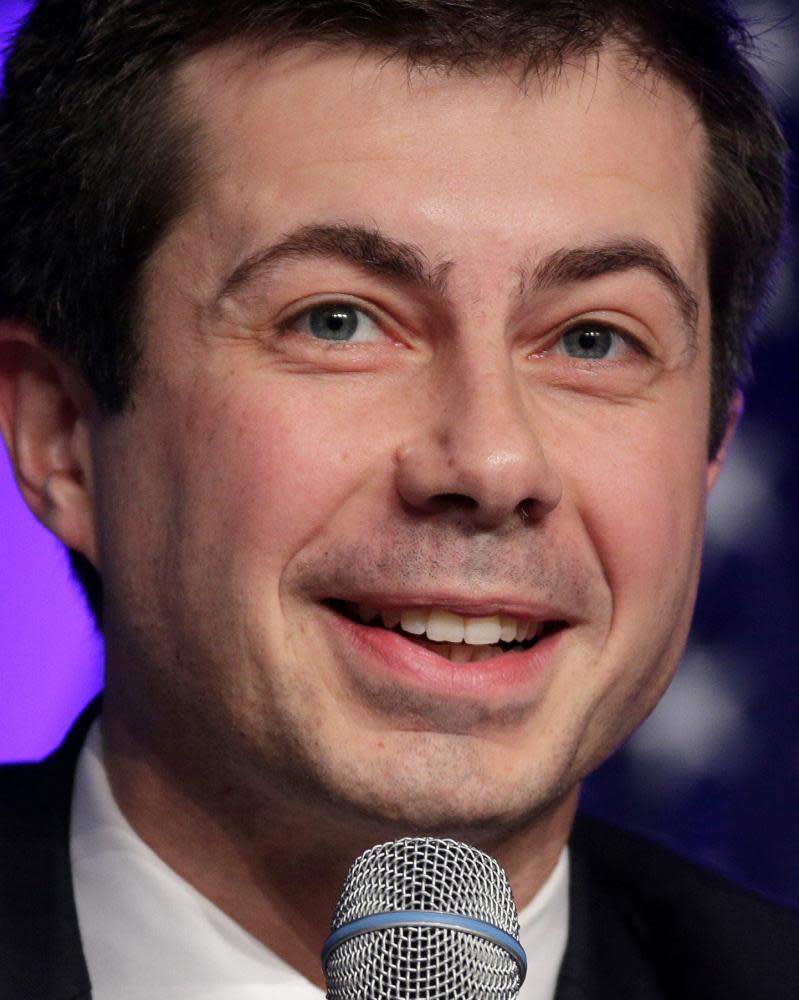
South Bend mayor Pete Buttigieg’s dark horse campaign is gaining steam in the final run-up to Atlanta. His sterling résumé, combined with a string of appearances in the national press, has some members doing a double take.
Buttigieg is a popular, 35-year-old mayor from a red state, a Harvard graduate and Rhodes scholar, who left office temporarily to serve as a navy reserve intelligence officer in Afghanistan. In 2015, after Indiana passed a religious freedom law that critics say allows business to discriminate against LGBT individuals and days before the supreme court legalized same-sex marriage, Buttigieg came out as gay in an essay published in the local paper.
“I spent Thanksgiving morning in a deer blind with my boyfriend’s father,” Buttigieg said during the CNN debate on Wednesday night. “How’s that for a 2017 sentence?”
He wants to see Democrats become more competitive in conservative states by reinvesting in local and state party infrastructure. He has said the organic resistance movement launched a “season of happy warriors”, and wants the Democratic apparatus to be shaped by that energy rather than the other way around.
The mayor is offering himself as a “compromise candidate”, someone who is not closely associated with either wing and an alternate choice if no candidate wins a majority on the first ballot.
Sally Boynton Brown
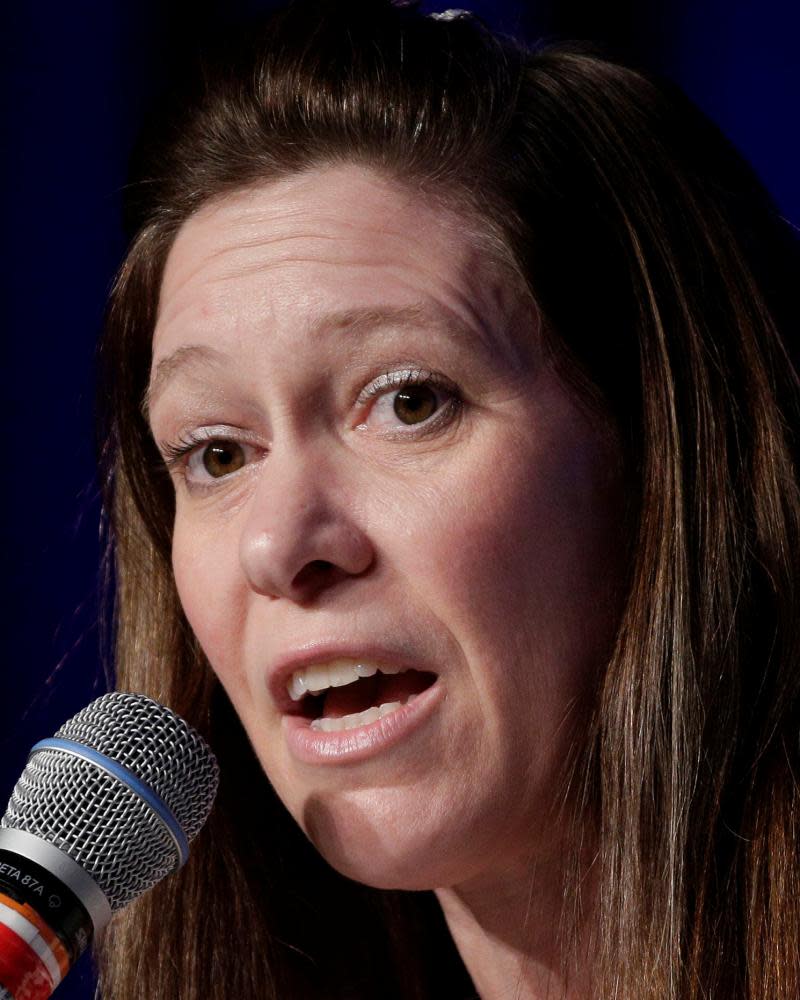
Sally Boynton Brown has been the executive director of the Democratic party in Idaho since 2012.
As chairwoman, Boynton Brown said she would make empowering women and minorities a priority.
“This past election laid bare the sexism that women have endured every day of our lives for generations,” she said. “‘Our path forward can’t gloss over this unjust barrier to life, liberty and the pursuit of happiness that pervades our society.”
Boynton Brown has been criticized by conservative media for comments she made during a discussion about prejudice in the Democratic party at a forum on race.
“My job is to listen to the issues,” she said, adding: “My job is to shut other white people down when they want to interrupt.” On Wednesday, she said the remark was taken out of context by far-right conservatives and reasserted her call for greater inclusiveness.
Jehmu Greene
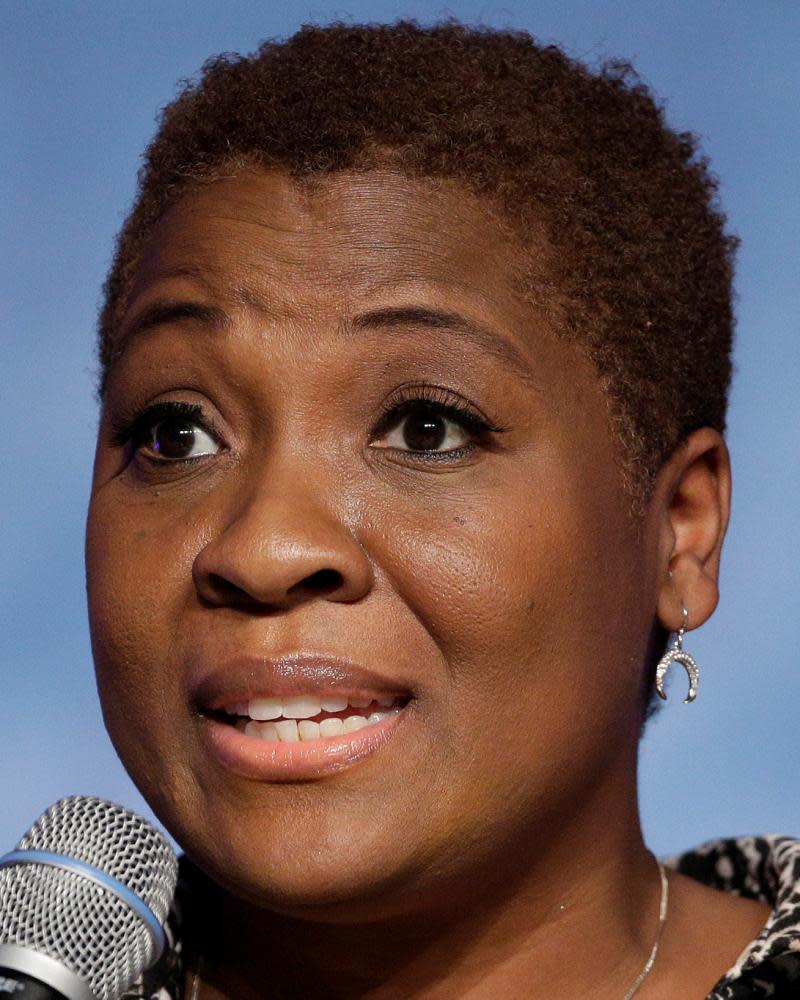
Jehmu Greene is the former director of Rock The Vote and was a Democratic political analyst on Fox News before jumping into the race for DNC chair.
The daughter of Liberian immigrants, Greene is a first-generation American who grew up in Texas. She has touted her experience as an activist and an organizer as an asset to a party looking for someone to translate the energy of the opposition movement into electoral successes.
Greene has laid out an ambitious vision for the party. She called for a voter turnout moonshot of as high as 80% by 2020, full gender parity in elective office by 2030 and a revamped Democratic primary system to make it more open and transparent.
Peter Peckarsky
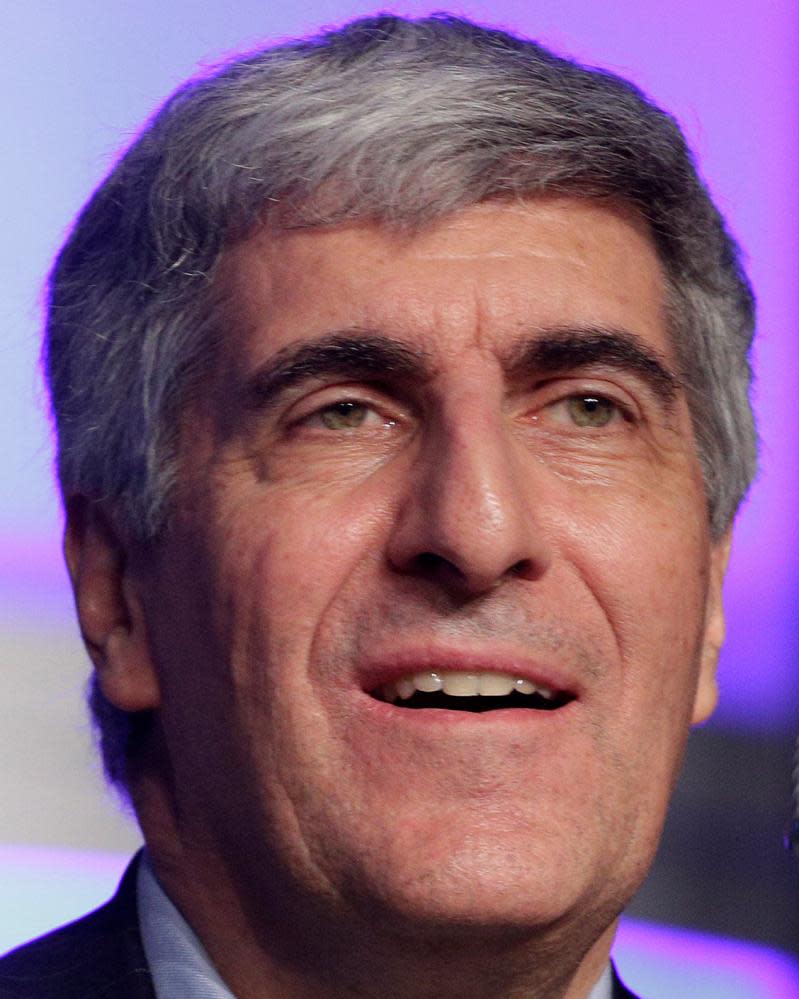
Peter Peckarsky is a Milwaukee-based attorney who has dedicated himself to issues of voter and election protection. After the 2016 election, he joined the voter recount efforts led by the Green party candidate, Jill Stein, in Michigan, Pennsylvania and Wisconsin.
He has argued that voter ID laws are in violation of the US constitution and during the CNN debate on Wednesday he called on Donald Trump to offer proof of his claim that three million people voted illegally in the 2016 election.
Sam Ronan
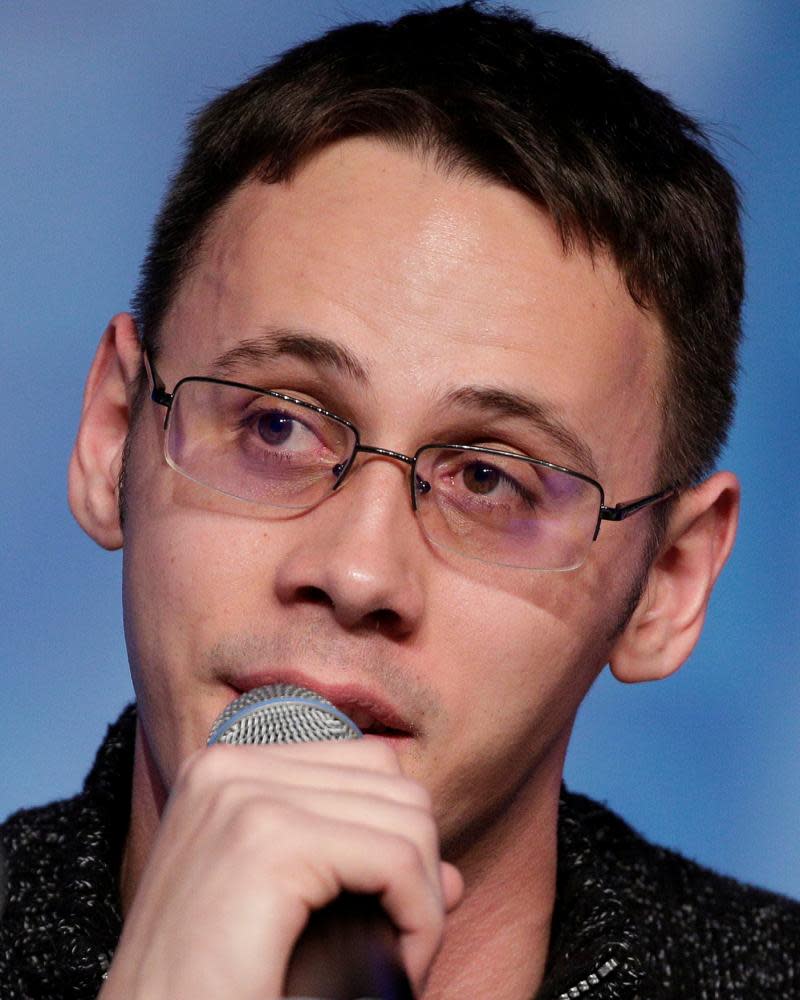
Sam Ronan is a 27-year-old US air force veteran from Ohio who entered the race to bring wholesale change to the DNC. During the CNN debate, Ronan said the Democratic presidential primaries were rigged because the DNC is “an insider’s game”. He has vowed to change that by making the party more transparent and rejecting all corporate donations.

 Yahoo News
Yahoo News 
